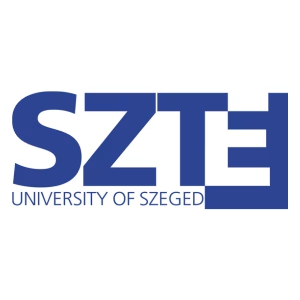-
Tuition/Year$4,915
-
Duration2 Year
- Apply
- Program Details
- prev
- next
Program Description
Study Educational Sciences at University of Szeged
This program provides an in-depth exploration of the interplay between society and education, emphasizing the understanding of both human and organizational behavior. It addresses how universal and individual phenomena are interrelated, fostering critical thinking skills vital for aspiring Social Scientists.
Key academic topics covered in the curriculum include current research trends, effective learning and instructional strategies, and methods tailored to diverse student needs. Areas such as collaboration, problem-based learning, and the integration of information and communication technologies (ICT) in educational settings are highlighted to reflect contemporary practices in teaching and learning.
The program also introduces essential professional attitudes and tools for ongoing development, alongside discussions on significant issues pertaining to educational theory and practice.
Students have the opportunity to specialize by selecting from various streams, such as Early Childhood Education, Assessment and Evaluation, or Compensatory Education. Each stream allows for focused study, and the selection of streams is influenced by student preferences to ensure relevance and engagement.
This degree is particularly beneficial for those looking to work in organizations involved in the governance or research of learning and instructional practices. It prepares graduates for roles that require educational expertise, a profound understanding of systemic dynamics, and effective problem-solving abilities.
Required Documents
Admission Requirements
To be considered for this Master's program, applicants must meet the following entry qualifications:
- Educational Background: Candidates should hold an undergraduate degree (Bachelor's Degree or higher) in one of the following fields:
- Pedagogy (Education)
- Andragogy
- Community Coordination
- Social Pedagogy
- Psychology
- Conductive Education
- Primary School Teaching
- Pre-School Teaching
- Special Needs Education
- Infant and Early Childhood Education
The Bachelor’s degree must be conferred before an admission offer is made.
- If your undergraduate degree is in another field:You are required to hold a Bachelor’s degree and have completed at least 50 ECTS credits (or 1500 study hours) in one or more of the following areas: Education, Psychology, Andragogy, Sociology, Law, Social Sciences, Economics, or Health Science. A review of your completed courses will be part of the admission process.
- Documentation:Entry qualification documents must be submitted in English. If original documents are not in English, official translations accompanied by verified copies of the originals will be required. Ensure you bring original documents when attending the university.
Language Proficiency Requirements
- Applicants must demonstrate English language proficiency at a minimum of B2 level on the CEFR scale, or a score of 6.5 or higher on the IELTS, or equivalent qualifications. Proof of language proficiency must be provided by a recognized language examination body.
At a Glance
-
AwardMaster of Arts
-
Duration2 Year
-
Tuition Fee$4,915 per year
-
Application Fee$90
-
Start DatesSep, Feb


